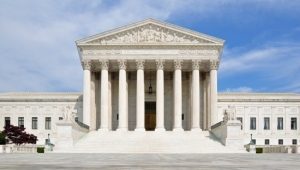Benefits Buzz
ACA Update: King vs. Burwell

On March 4, 2015 the U.S. Supreme Court heard oral arguments in regards to the King vs. Burwell case, which is the most significant challenge to the Affordable Care Act (ACA) since the constitutionality of the Individual Mandate was challenged back in 2012. The plaintiffs in the King vs. Burwell case argue that subsidies can only be provided by states that establish an Exchange on their own. They further argue that the federal government, which is utilized in 37 states, cannot provide subsidies to Exchange applicants.
If the Supreme Court decides the federal government does have the ability to provide subsidies, then the ACA is mostly unaffected and the provisions of the law continue to be upheld and implemented. But, a ruling in favor of the plaintiffs could have the same effect as a complete repeal of the law. There are so many provisions of the ACA that would not be sustainable as currently written. Here are just a handful of things that will need to be addressed if there is a ruling in favor of the plaintiffs:
-
Approximately 8 million people currently receive subsidies though the federal Exchange.
-
Do the subsidies stop immediately?
-
Is there a transitional period that will allow subsidies to continue for a short period of time?
-
Will individuals that received subsides have to pay them back?
-
-
The individual market will be severely impacted.
-
How many people will become uninsured?
-
How many carriers will continue to offer coverage on the federal Exchange?
-
How much will premiums rise? (Estimates range between 35% and 200%)
-
-
Congress will need to pass a number of different regulations.
-
Will they pass a law that allows the federal government to provide subsidies?
-
Will guarantee issue and adjusted community rates continue?
-
Does the ACA get replaced with a new healthcare law?
-
-
States that have not created their own Exchange can create one.
-
How many states will do this?
-
How long will it take to develop an exchange?
-
When is an Exchange considered a state-run Exchange? Some states operate a hybrid Exchange that is run jointly by the state and federal government.
-
-
The Employer Mandate is indirectly impacted.
-
Will Employer Mandate rules be modified, delayed or eliminated? Penalties only apply when full-time employees receive subsidies in an Exchange. If subsidies aren’t available in 37 states, then there is no penalty exposure for employers that only have employees in these states.
-
The Supreme Court is expected to make a decision on this case towards the end of June. Based on media coverage, it appears the Supreme Court judges are split on how they will rule, and it’s anyone’s guess on the outcome. Subscribe to this blog or join our mailing list to stay updated on healthcare reform and more with Flexible Benefit Service LLC (Flex).
The materials contained within this communication are provided for informational purposes only and do not constitute legal or tax advice.

